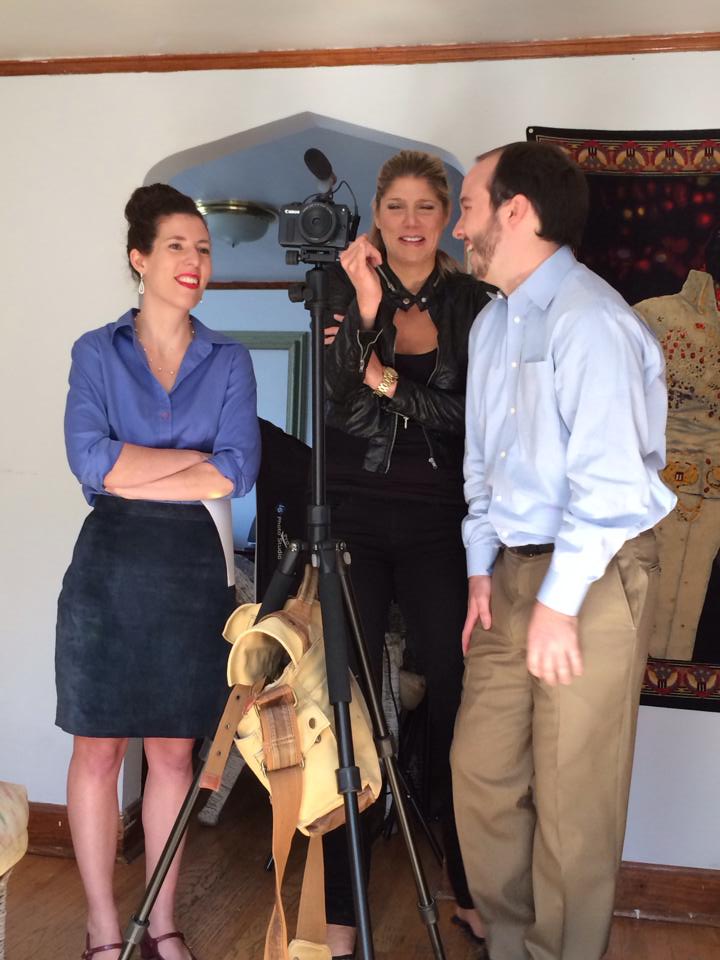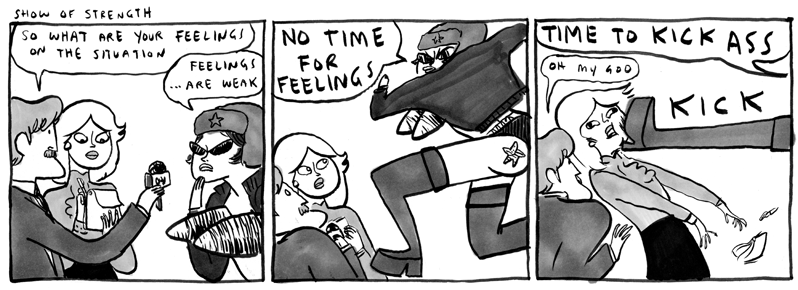By Phaydra Babinchok, Chicago, IL, USA, SSH Safe Public Spaces Mentee
 I was excited upon learning about Stop Street Harassment’s Safe Public Spaces Mentoring Program. I had wanted to do an activist project concerning street harassment and this seemed like the perfect opportunity. As an aspiring feminist filmmaker I knew I wanted to pitch a creative project involving film since I think it is the best medium for educating. Since the majority of films about street harassment are documentaries or have a serious tone I knew I wanted to do the complete opposite and approach street harassment from a comedic viewpoint.
I was excited upon learning about Stop Street Harassment’s Safe Public Spaces Mentoring Program. I had wanted to do an activist project concerning street harassment and this seemed like the perfect opportunity. As an aspiring feminist filmmaker I knew I wanted to pitch a creative project involving film since I think it is the best medium for educating. Since the majority of films about street harassment are documentaries or have a serious tone I knew I wanted to do the complete opposite and approach street harassment from a comedic viewpoint.
Humor is one of our most powerful tools; it is subtle and doesn’t make people defensive. I initially pitched three short films. The first film was going to be a role reversal or satire of the sexes where a man was being catcalled by women. The second film was going to be a woman talking to the camera asking the questions from the catcaller questionnaire. The third film was going to show a street harasser getting escalating warnings for his behavior. For his first offense he was going to be sprayed with a spray bottle, for his second offense he was going to be squirted with a squirt gun, and then as his final warning he was going to be sprayed with a super soaker.
There were multiple meetings with varied groups to develop the films. There was a meeting with fellow feminists and during that meeting it was suggested that the third film idea of giving escalating warnings was trivializing street harassment. An alternative idea of creating “Shit Street Harassers Say” was suggested. During the meeting with feminists I kept emphasizing that the films were supposed to be funny and not serious, but this idea wasn’t really supported. I then held a meeting with community activists and we storyboarded the first film concept of reversing the roles. I sent the storyboard to Holly and Jaclyn Friedman and their feedback was that men aren’t afraid of women so was there any way to change it show real fear. I didn’t think that would be possible to do while still retaining a comedic viewpoint so the film was dropped.
There was a final meeting with comedians and this is when a whole new concept was developed. We decided to parody the E-Harmony dating site commercials. We wanted to develop one film about a couple who met and started dating because of street harassment.
In the end we developed three videos each written by a different comedy writer, two of whom are men. I feel it is important to involve men in feminist issues instead of just merely lecturing to them. All the language in the films is deliberate. “When Fairies Attack” reverses the usual scenario of straight men street harassing gay men because of their sexuality. The term bitch is used to emphasize how demeaning street harassment is. “He’s Just Not Into That” was written because we didn’t want the men to feel left out and to acknowledge that men do get street harassed. I wrote “Damsel In Distress” to poke fun at the common belief that it is not safe for a woman to walk alone and that she needs a man a “good guy” to protect her.
They are available online – please share – and we showed them at an event in Chicago in October.
Phaydra Babinchok is a feminist activist based in Chicago. She is the Director of SlutWalk Chicago and Chapter Leader of Chicago’s Women, Action, and the Media. She works at Sarah’s Circle, a program that helps homeless women.


